
Child labor laws in the United States address issues related to the employment and welfare of working minors and children in the United States. The most sweeping federal law that restricts the employment and abuse of child workers is the Fair Labor Standards Act (FLSA). Child labor provisions under FLSA are designed to protect the educational opportunities of youth and prohibit their employment in jobs that are detrimental to their health and safety. FLSA restricts the hours that youth under 16 years of age can work and lists hazardous occupations too dangerous for young workers to perform.
Marital rape or spousal rape is the act of sexual intercourse with one's spouse without the spouse's consent. The lack of consent is the essential element and need not involve physical violence. Marital rape is considered a form of domestic violence and sexual abuse. Although, historically, sexual intercourse within marriage was regarded as a right of spouses, engaging in the act without the spouse's consent is now widely classified as rape by many societies around the world, repudiated by international conventions, and increasingly criminalized.
Labor rights or workers' rights are a group of legal and human rights relating to labor relations between workers and employers, codified in national and international labor and employment law. In general, these rights influence working conditions in relations of employment. One of the most central is the right to freedom of association, otherwise known as the right to organize. Workers organized in trade unions exercise the right to collective bargaining to improve working conditions.

Human rights in Nigeria are protected under the most current constitution of 1999. Nigeria has made major improvements in human rights under this constitution though the American Human Rights Report of 2012 notes areas where significant improvement is needed, which include: abuses by Boko Haram, killings by governmental forces, lack of social equality, and issues with freedom of speech. The Human Rights Watch's 2015 World Report states that intensified violence by Boko Haram, restrictions of LGBTIQQ rights, and government corruption continue to undermine the status of human rights in Nigeria.
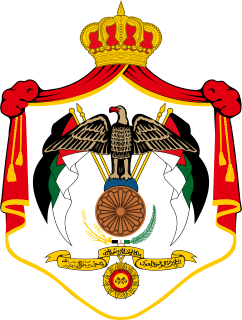
Human rights in Jordan are among the best and most respected in the Middle East. Although recently there have been far-reaching reforms of the laws and regulations in the country, abuses against basic rights such as freedom of expression persisted.
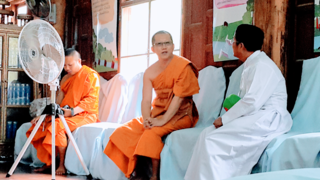
The status of religious freedom around the world varies from country to country. States can differ based on whether or not they guarantee equal treatment under law for followers of different religions, whether they establish a state religion, the extent to which religious organizations operating within the country are policed, and the extent to which religious law is used as a basis for the country's legal code.

In the U.S. state of North Dakota, the Agriculture Commissioner, formerly known as the Commissioner, is an elected official who heads the North Dakota Department of Agriculture. The present commissioner is Doug Goehring, a Republican.
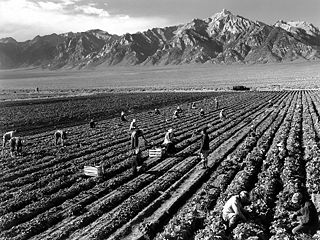
A farmworker is a hired agricultural labourer. In labor law, the term "farmworker" is sometimes used more narrowly, applying only to a hired worker involved in agricultural production, including harvesting, but not to a worker in other on-farm jobs, such as picking fruit.
In the U.S. state of North Dakota, the Commissioner of Labor, commonly referred to as Labor Commissioner, is an appointed official who heads the North Dakota Department of Labor and Human Rights. The present commissioner is Erica Thunder.

The North Dakota Department of Agriculture is a part of the government of the U.S. state of North Dakota. The department fosters a healthy economic, environmental, and social climate for agriculture and the rural community through leadership, advocacy, education, regulation and other services.
The North Dakota Commissioner of Agriculture and Labor was an elected official who headed the North Dakota Department of Agriculture and Labor. The office was established with the state's constitution in 1889, and was split into two separate offices – the North Dakota Commissioner of Labor and the North Dakota Commissioner of Agriculture – in 1966, when the two departments also split due to a constitutional change that was voted on in 1964.
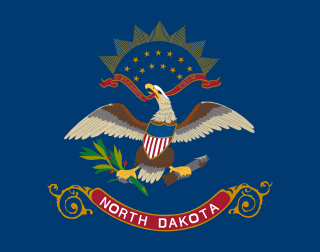
The North Dakota State Cabinet is part of the executive branch of the Government of the U.S. state of North Dakota, consisting of the appointed heads of the North Dakota state executive departments. The State Cabinet has evolved into a major part of the State government.
The following table indicates the party of elected officials in the U.S. state of North Dakota:
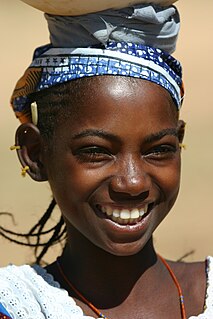
The status and social roles of women in Mali have been formed by the complex interplay of a variety of traditions in ethnic communities, the rise and fall of the great Sahelien states, French colonial rule, independence, urbanisation, and postcolonial conflict and progress. Forming just less than half Mali's population, Malian women have sometimes been the center of matrilineal societies, but have always been crucial to the economic and social structure of this largely rural, agricultural society.

The Harvest is a 2010 documentary film about agricultural child labor in America. The film depicts children as young as 12 years of age who work as many as 12 hours a day, six months a year, subject to hazardous conditions: heat exposure, pesticides, and dangerous work. The agriculture industry has been subject to significantly more lenient labor laws than any other occupation in the United States. As a result, lack of consistent schooling significantly limits their opportunities of succeeding in high school or more. The hazardous conditions threaten their health and lives. The purpose of the documentary is to bring awareness of the harsh working conditions which tens of thousands of children face in the fields of the United States each year and to enact the Children's Act for Responsible Employment which will bring parity of labor conditions to field workers that are afforded to minors in other occupations.

Human trafficking is a modern form of slavery, with illegal smuggling and trading of people, for forced labor or sexual exploitation.
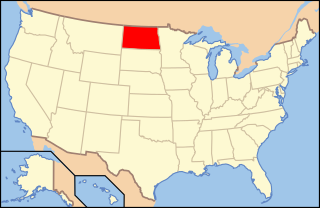
Lesbian, gay, bisexual, and transgender (LGBT) persons in the U.S. state of North Dakota may face some legal challenges not experienced by non-LGBT residents. Same-sex sexual activity is legal in North Dakota, and same-sex couples and families headed by same-sex couples are eligible for all of the protections available to opposite-sex married couples; same-sex marriage has been legal since June 2015. However, LGBT people still lack discrimination protections.

Togo, a small, rich country in West Africa that was labeled "Not Free" by Freedom House from 1972 to 1998, and again from 2002 to 2006, and that has been categorized as "Partly Free" from 1999 to 2001 and again from 2007 to the present, has very serious and longstanding human-rights problems. According to a U.S. State Department report based on conditions in 2010, they include "security force use of excessive force, including torture, which resulted in deaths and injuries; official impunity; harsh and life-threatening prison conditions; arbitrary arrests and detention; lengthy pretrial detention; executive influence over the judiciary; infringement of citizens' privacy rights; restrictions on freedoms of press, assembly, and movement; official corruption; discrimination and violence against women; child abuse, including female genital mutilation (FGM), and sexual exploitation of children; regional and ethnic discrimination; trafficking in persons, especially women and children; societal discrimination against persons with disabilities; official and societal discrimination against homosexual persons; societal discrimination against persons with HIV; and forced labor, including by children."
The Right Reverend Creighton Leland Robertson was ninth bishop of the Episcopal Diocese of South Dakota from 1994 to 2009.

Dustin M. Johnson is an American politician serving as the U.S. Representative for South Dakota's at-large congressional district since 2019. A member of the Republican Party, he previously served as a South Dakota Public Utilities Commissioner from 2005 to 2011, when he was appointed chief of staff to Governor Dennis Daugaard, a position he retained until 2014. Between his state political career and congressional service, Johnson was the vice president of Vantage Point Solutions in Mitchell, South Dakota.













